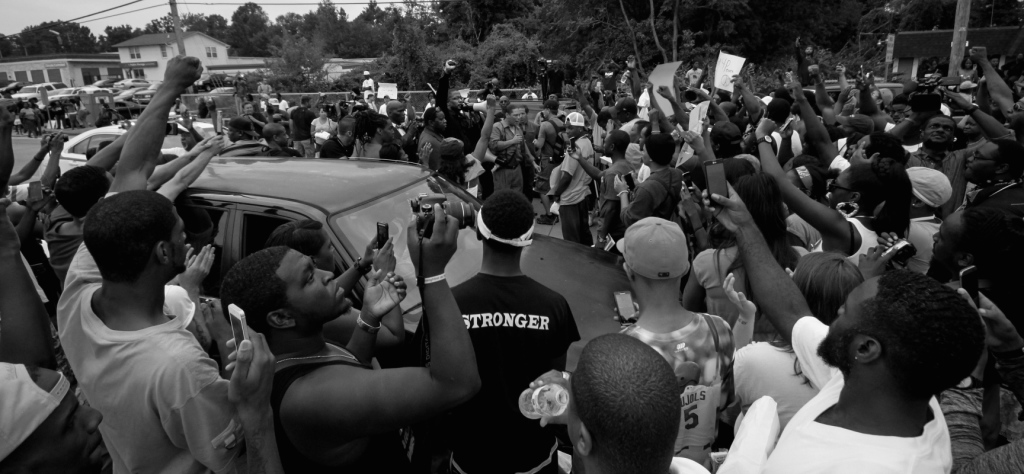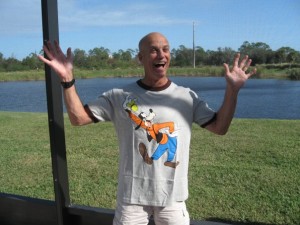America may well turn upside down in the wake of the announcement that Officer Wilson will not be indicted by a grand jury for the death of Michael Brown.
And a lot of people feel powerless.
It’s time for a radical choice, one in which you can make a difference. It isn’t found on a street corner. It won’t be made on a picket line. And God forbid, it won’t be on Facebook.
I hear a lot of talk about listening and empathizing whenever these racially tense public trials occur — in the months following the Zimmerman/Martin trial and the ensuing race relations and now here with Officer Wilson and Michael Brown — the idea white Christians should listen to the African American community’s hurts and simply validate. Say no more. Take it in. Hold back.
And I suppose that has its place.
Here’s the problem with that — it’s not enough.
If we’re honest, listening in our current society amounts to little more than ignoring Facebook rants and keeping a polite distance from discourse that may provoke controversy. Because how many of us really have meaningful, thought-provoking discussions about race with friends of different skin tones? 1%? Honestly, I wonder how many have regular conversations at all?
Heck, my wife and I have to work at talking to each other around our two little bundles, baths, The Tigger Movie, and a pantry full of Gerber Organic Harvest Vegetables with Mixed Grains (which is as disgusting as it sounds). In competition with this, my guess is listening and empathizing will be chalked up somewhere on an anonymous list of nice forgotten sentiments that never made a hill of difference. Which is why we need more.
You see, love is not a definite quantification. It has no absolute value. It is, in a strange way, relative to its surroundings.
Love’s value is inversely proportionate to the lack of it in its surrounding culture.
In other words, your love is worth more given to people who do not have love.
And the value of any ACT OF LOVE is automatically worth more when it is given to someone who expects the opposite.
This kind of love can break down barriers, heal divides, change societies from the inside — from the heart.
As a Christian, you should love everyone you meet. But the effect of your love isn’t equal. It is infinitely more powerful when it is given to someone who expects hate, misunderstanding, or even worse, apathy.
It is an incredible principle.
This means you can strategically target with love — profile even — people who never expect it from you, and receive infinitely more dividends of glory for Christ in return.
My dad grew up in inner city Detroit and Dearborn, Michigan. He spent his elementary years having his watch and other non-precious articles pick-pocketed by bigger black boys and given back by their bigger-hearted black girlfriends who scolded them for picking on the little white boy. Years later, he received a prestigious offer to join the Alvin Ailey Dance Company, perhaps the most prestigious modern dance company in the world, back when they didn’t ask white dancers. At that time, he lived in black Harlem in the 70’s, when white people didn’t do that, because that’s the culture in which he felt comfortable.
One day while living in Harlem, my dad saw a white person walking the opposite direction from him on the sidewalk. It happened once. The guy frantically weaved his way through the bustling crowd toward my dad and muttered as he passed, “We’ve gotta get out of here.”
My dad turned around, raised his arms, and shouted, “But… I live here!”
There’s another way to treat people.
Most of the people who know my father have told me at some time he is the most charismatic, charming guy they know. The biggest smile, the friendliest person. Well, I’m going to tell you a secret. What might shock them if they’re white is he’s even cooler around black people.
See, my dad likes everyone he meets — he’s a consummate extrovert and gregarious socialite — but he loves black people. They share an affinity. A way of laughing, living, looking at the world, and from the beginning, a culture. In a backwards sort of way, you might call him a reverse racist.
But here’s the crazy part. That’s exactly what we need right now.
Think about it. What better opportunity do we have at this moment in America than to deliberately love a race other than our own? What act can provide you more value for your effort of love? Where could you spend it and receive more glory to God in return? When racial tensions are straining at the sinews of American culture, can you find any place more important to love?
Here’s exactly what I mean.
I don’t have time to start a deep conversation that chronicles all injustices done and felt since the Civil War era with my black friends, who would more than likely be a little uncomfortable having me broach the subject.
But I am going for milk tomorrow.
And I will undoubtedly pass a person with different melatonin from my own on the way to the cookie aisle, while snatching a carton of Breyer’s Mint Chocolate Chip or loitering around fumes at the pump. I will see people different from myself today. So I’m going to go out of my way to make each one feel like the most important person in my day. That’s my plan to change the world. That’s it.
I’m holding my own personal revolution. And here’s how I’m going to do it:
1. I’m going to smile. Pearly whites. Hopefully no yellow grime or lettuce particles. (Wouldn’t want to do more harm than good.)
2. I’m going to wave. Like I’ve spotted a long-lost friend. Or possibly a new one worth hanging onto.
3. I’m going to talk up every person, especially those who appear different from me, while waiting at the meat counter.
4. And with every wonderful black dude in line at the Redbox who’ll laugh with me, I’m going to laugh.
That’s it. I can’t solve the world’s problems, or even America’s — and neither can you — but we can both do what matters in our own tiny spheres. We can love the people in front of us and not eat Gerber Harvest Vegetables with Mixed Grains.
And who knows? We may make a greater difference than all the talking heads on TV, the opportunists who capitalize on wounded people’s discontent, or even all those well-meaning pacifists on Facebook. Yet, it doesn’t take a lot. It doesn’t even take swallowing your pride when someone rails on a social media post you had the misfortune to like.
All it takes is becoming a little more like a shy kid from Detroit who doesn’t know he’s a few dials off on his race meter.
Who was pushed down when he was small but got back up with an even bigger smile on his face. Something, no matter what race you are, or how you or your relatives were treated, we can all relate to. Because bitterness has never held off love forever. Can never hold off love forever.
You may feel gut-punched by the decision today. You may feel knocked down again. We all do from time to time, when it comes down to it — black or white, Jew or Gentile, Protestant or Catholic.
But there is a solution.
It’s found down a little street in Harlem. Down an ice cream section, in a cookie aisle, in front of the meat counter, at a bank teller window. Right where you find someone different from you. And in the choice that you make at that moment you can change a bit of your world.
You aren’t powerless.
Take the chance to use the commodity of love, the only priceless one you hold, in the expense of what is most valuable.
Decide now to target — racially, socially, economically, spiritually or otherwise — everyone you meet in your cookie aisle with love.
The world can do what it will. — It will. — Let it.
Oh, I promise you’ll get knocked down a time or two. You might even get your watch stolen. But so did Christ.
And when you get back up, we’ll turn this world upside down together with love. I’ll meet you in the cookie aisle.

